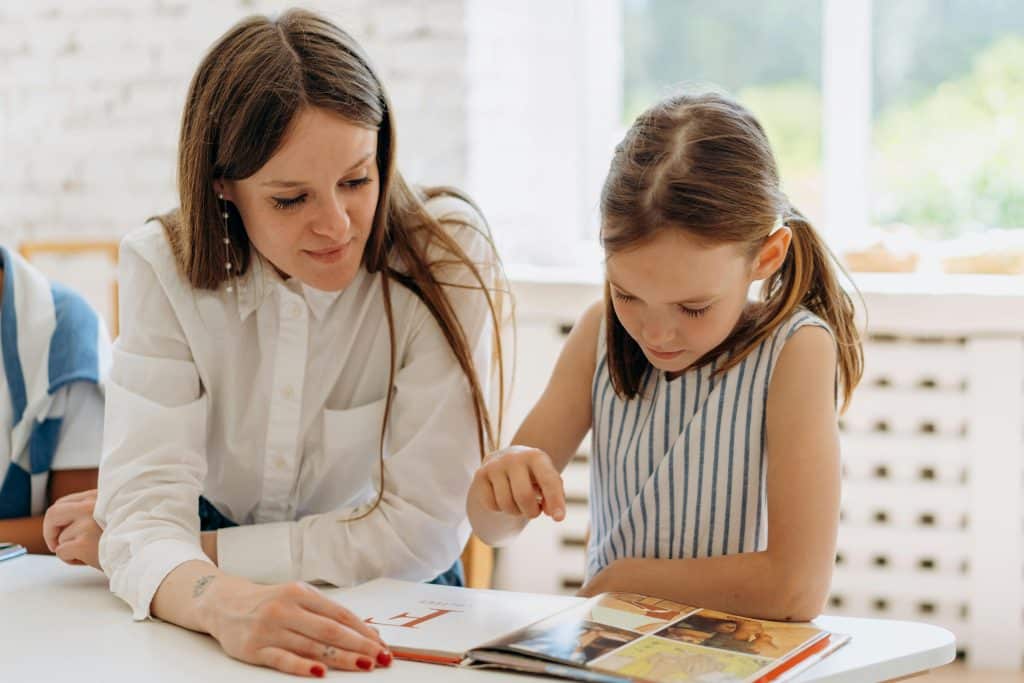As a licensed practitioner who works with kids, I’ve seen firsthand how vital respect is in shaping their lives. Teaching children about respect is one of the most important lessons we can impart, as it lays the foundation for healthy relationships, self-esteem, and overall well-being. In this blog post, I’ll share some practical tips and strategies for explaining respect to a child in a way that resonates with them.
Table of Contents
What is Respect?
Before we dive into how to teach respect, let’s define what it means. Respect is caring about others, yourself, property, or the environment, and showing that care through your actions and words. Respect builds feelings of trust, safety, and wellbeing. It’s a fundamental value that helps kids navigate social interactions and develop empathy.
Modeling Respect
One of the most effective ways to teach respect is by modeling it ourselves. Children are keen observers and often imitate the adults in their lives. When we treat others with kindness, listen attentively, and use respectful language, we set a powerful example for our kids to follow.
I remember a time when I was working with a group of children, and one of them started arguing with another. Instead of scolding them, I took a deep breath and calmly asked them to explain their perspectives. By demonstrating respect in that moment, I showed them that it’s possible to resolve conflicts peacefully and with understanding.
Goally | The Safest Tablet for Kids

Using Kind Words
The language we use plays a significant role in fostering respect. Encourage your child to use respectful words and phrases, such as “please,” “thank you,” and “excuse me.” When they make a mistake or hurt someone’s feelings, teach them to apologize sincerely and make amends.
In my work with neurodivergent kids, I’ve found that using visual aids and social stories can be particularly helpful in reinforcing respectful communication. For example, you could create a chart with “respect words” and hang it in a prominent place as a reminder.
Practicing Compassion
Respect goes hand in hand with compassion. Teaching your child to be kind and empathetic towards others helps them develop a deeper understanding of respect. Encourage them to lend a helping hand when someone is struggling or to listen attentively when a friend needs to talk.
One way to practice compassion is through volunteering or community service. Engaging in activities that benefit others not only teaches respect but also helps children develop a sense of purpose and gratitude.

Read more: Teach Your Kid How to Take Turns
Respecting Differences
In today’s diverse world, it’s crucial to teach children to respect differences. Whether it’s differences in race, religion, ability, or opinion, emphasize that everyone deserves to be treated with dignity and kindness.
| Ways to Respect Differences |
|---|
| – Learn about other cultures and traditions |
| – Avoid stereotypes and prejudices |
| – Listen to others’ perspectives with an open mind |
| – Celebrate diversity and inclusivity |
According to a study by the American Psychological Association, children who receive positive messages about diversity and inclusion from their parents are more likely to have higher self-esteem and better social skills.
Learning Through Play
Play is a powerful tool for teaching respect. Games that involve turn-taking, sharing, and cooperation help children practice respectful behavior in a fun and engaging way. Board games, team sports, and collaborative art projects are all excellent options.
I once worked with a group of kids who struggled with taking turns and sharing. We introduced a game where they had to work together to build a tower using blocks. Each child had a specific role, and they had to communicate and respect each other’s contributions to succeed. It was amazing to see how quickly they grasped the concept of respect through play.
Consistency is Key
Teaching respect is an ongoing process that requires consistency and patience. It’s important to reinforce respectful behavior through positive feedback and gentle reminders when needed. When children make mistakes or act disrespectfully, use it as an opportunity for learning and growth rather than punishment.
Remember, children are constantly observing and absorbing the world around them. By consistently modeling and teaching respect, we can help them develop into kind, empathetic, and respectful individuals.

Goally | Best Videos to Teach Life Skills
Give your kid an independent future. Goally has 100+ video classes teaching life skills like “How to Choose a Restaurant,” “How to Interrupt Politely,” and “How to Get Ready for School.”
Goally takes kids on an adventure that includes interactive practice and checkpoints along the way! No web browsers, YouTube, or social media.
Teaching children about respect is one of the greatest gifts we can give them. By modeling respect, using kind words, practicing compassion, respecting differences, and learning through play, we can help kids develop a strong foundation of respect that will serve them well throughout their lives. It’s a journey that requires patience, consistency, and love, but the rewards are immeasurable.
Additional Resources:
- How to Teach Kids Respect – This article provides practical tips and strategies for teaching respect to children of different ages.
- Teaching Empathy: Evidence-Based Tips for Fostering Empathy in Children – This comprehensive guide explores the importance of empathy and offers research-backed techniques for nurturing it in kids.
- Teaching Respect Through Play – This Edutopia article delves into how play-based learning can be an effective tool for teaching respect and other social-emotional skills.
FAQ’s About How to Explain Respect to a Child
What is respect?
Respect is caring about others, yourself, property, or the environment, and showing that care through your actions and words.
Why is teaching respect important for children?
Teaching respect is crucial for children as it helps them build healthy relationships, develop empathy, and navigate social interactions effectively.
How can parents model respect for their children?
Parents can model respect by treating others with kindness, listening attentively, and using respectful language in their daily interactions.
What are some practical ways to teach children about respect?
Some practical ways to teach children about respect include using kind words, practicing compassion, respecting differences, and learning through play activities that involve turn-taking and cooperation.
How can parents reinforce respectful behavior in children?
Parents can reinforce respectful behavior by providing positive feedback, using gentle reminders when needed, and treating mistakes as opportunities for learning and growth rather than punishment.
Emily is a seasoned blog writer for Goally, leveraging her extensive background in child psychology and special education to provide valuable insights and resources for parents. Her commitment to understanding and addressing the unique needs of these children, combined with her expertise in educational strategies, makes her a credible and empathetic voice for families.






